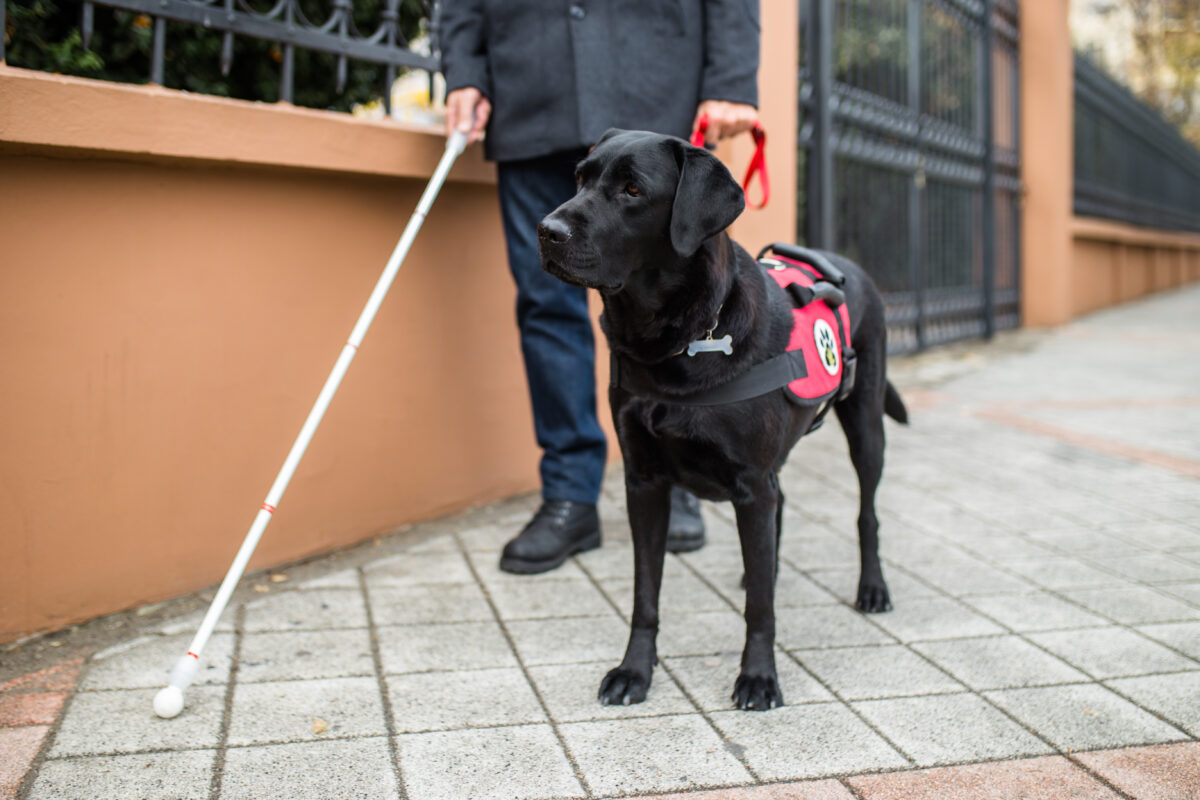Under the Americans with Disabilities Act (ADA), “A service animal is defined as a dog that’s been trained to work or perform tasks for an induvial with a disability.” This could be guiding people who are blind, alerting them to low blood, or calming their handler suffering from PTSD symptoms.
Here’s a quick overview of what you should know about service dogs:
Service dogs are allowed where their handler can go, barring safety concerns
In a previous blog, we discussed how businesses could not disallow assistive devices in all areas where other customers are allowed to go. The same rules and exceptions apply to service dogs if there is a legitimate safety concern.
The service animal must be under the handler’s control at all times and be harnessed, leashed, or tethered unless doing interferes with the animal’s safe, effective performance of tasks.
Only limited inquiries are allowed
When a service dog is present, staff may only ask two questions:
- Is the dog a service animal required because of a disability?
- What work or task has the dog been trained to perform?
Special documentation, be it medical cards or service documentation, cannot be demanded of the disabled person. Neither can the service dog be removed from the premises unless it’s not under control or not housebroken. If the dog must be removed, the person with a disability must be allowed to obtain needed goods and services without the animal present.
Research local and state laws about service dogs
Regarding your local and state laws, the rules defining a service dog or animal can be either more broad or specific from the ADA. At Delta Center, we can help you find the resources you need to understand better, not only if a service dog is right for you but understand the laws surrounding their use.
You deserve to understand your rights and needs and get the accommodations and help you need when you need it. We will help you get that help and offer skills and self-advocacy training.
Delta Center Advocacy services are free to disabled adults and senior citizens. For Information and Referral, please call our Hotline at 636-926-8761, extension 228, or you may contact us by email at [email protected]. Learn more about disability advocacy at Delta Center

